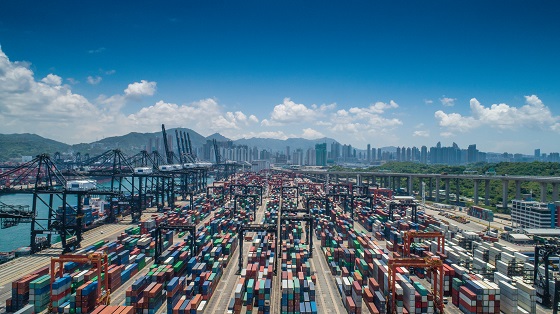Logistics is a very complex industry that involves a lot of well coordinated procedures, such as processing orders, inventory, scheduling and tracking delivery. If so far all of these high-volume, repetitive processes were performed manually, automation proves to be a real game-changer for the future of the industry. When performing monotonous, mundane tasks, humans naturally become prone to errors, which could lead to delays and operational inefficiency, but robotic process automation (RPA) is here to change the way logistics companies do business, enhancing the accuracy of their processes.
Let’s take a look at a list of the most relevant RPA use cases for the supply chain and logistics:
Order management
In the supply chain and logistics industry, every process has to be very precise to achieve overall success of the business, so order management has a vital role.
Depending on the size of the company, hundreds or even thousands of orders have to be reviewed daily before proceeding with the shipping and invoice processes, but doing this manually can turn into a nightmare fairly quickly.
Using RPA in the supply chain, you can automate this whole process, using a wide range of criteria such as pricing, quantity and regularity of purchase. In case of any mismatches, the software robots can send notifications to employees to review the order – but this happens only for a very small percentage of the orders.
For example, Rudolph is a software robot built by us on the UiPath platform for a toy retailer. Its role is to process the orders that Ara Toys get from their clients, to confirm that they are in stock and to make sure they are delivered on time. By doing this, automation saves Ara Toys hours of manual work every single day. Find out more about how Rudolph can help processing orders for Ara Toys from our video case study.
Inventory management
Inventory monitoring is another important element of the core business of logistics in order to align the demand with the available products.
Since it requires tracking a large amount of data, robotic process automation in supply chain and logistics can monitor the remaining quantity of the products, send a notification to the responsible employee and, at the same time, order new shipments when needed.
Software robots can optimize the whole inventory management process by tracking inventory from the time products are received, to shelves, and then shipping.
Planning of the supply and demand
This process requires analyzing reports and a huge amount of diverse data from the market, suppliers, customers and from the company itself. These tasks are very time-consuming and require a high level of attention from human workers, which puts them at risk of generating errors.
RPA can perform these activities faster and without mistakes, by gathering, storing and preparing data and then by delivering it in a complex report. Thus, managers can efficiently plan the supply and demand.
Invoice management
Invoice management requires high-volume tasks involving tracking and entering a significant amount of data – which makes it suitable for automation.
RPA can process invoice documents from suppliers much easier, faster and reduce the risks of error to zero.
As a UiPath partner, we built for a software robot named Piscot for Ana Pan, to help the company process orders from supermarkets. The robot adds the order in the ERP software, sends the baked goods into production and sets the date and time for delivery to the supermarkets.
Using Piscot, the company reduced the cost and time it takes to input invoices into their system – each month Piscot is saving Ana Pan 60 hours of labor work for one person while reducing errors to zero. Watch Piscot in action in our video case study.
Customer satisfaction
This is an important ingredient in every business and industry, as customers need to be well informed about the status of their orders. Thanks to automation, emails and notifications can be sent to customers during the whole process, from the moment the order is processed, shipped or delayed.
Summing up, robotic process automation can facilitate maintaining a better customer experience for the supply chain and logistics industry.
Cristian Ignat is Founder & CEO at Aggranda
This article is a summary of this blog

